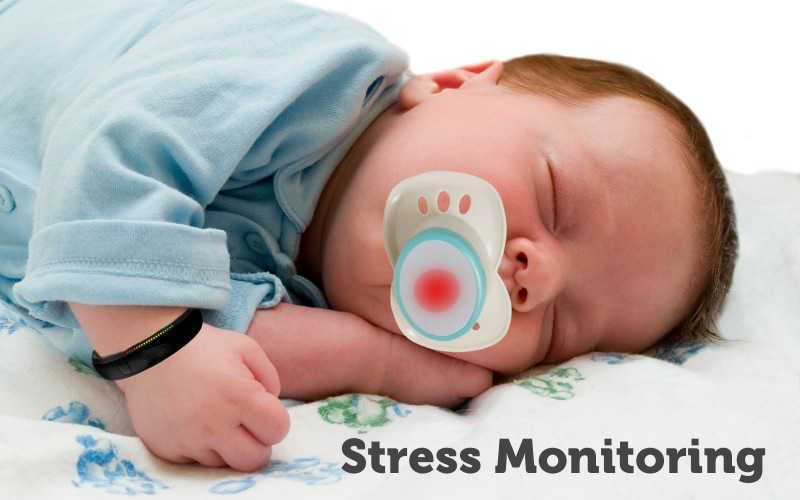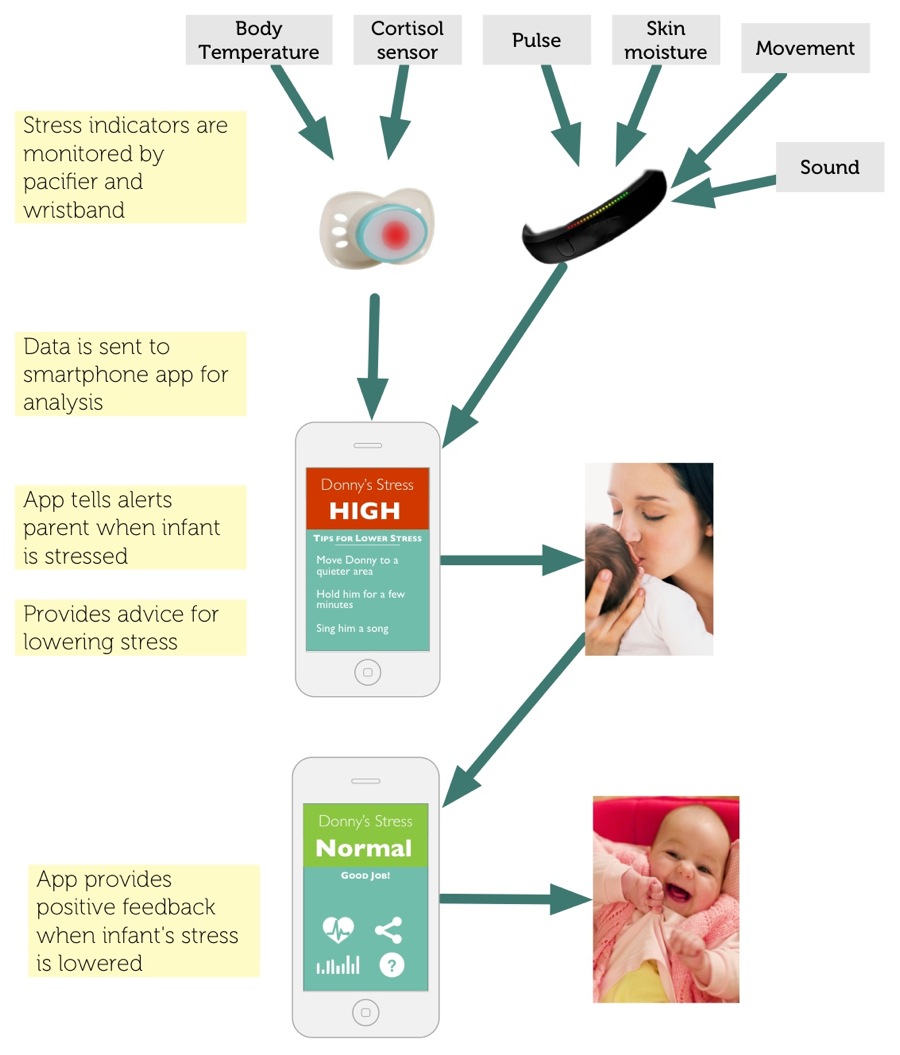
Enabling parents to monitor infant's stress levels and recieve feed back on their parenting
Babies are confusing and difficlut for new parents, especially for parents who have struggled through and adverse childhood themselves. These parents often don't see their infant as someone to have a relationship with, but rather as an "incomprehensible bundle of need".
Infants usually demonstrate that they need something or are stressed something by crying, so parents will try and make their kid stop crying. But this often ends up being for the parent's sake—so that the kid will be quiet—rather than so that the kid feels better, and isn't stressed. Additionally, research has shown that when babies are left to cry until they stop, their stress levels are still elevated hours after they stop crying.
Our goal is to help build the emotional relationship between parent and child. By monitoring when an infant is stressed and notifying the parent, the goal is that the parent will see their child's emotions, and try to change those, rather than just trying to queit them. Additionally, alerting the parent at the moment their baby is most stressed will enable the parent to comfort their child when they most need it.
Devices that can measure movement, pulse, and temperature throughout the day are currently on the market, and are increasingly popular in medical devices and other applications. These sensors can simply be adapted for use with an infant. There is, however, no way to measure cortisol in real-time. The hormone is usually measured in the saliva, but this requires taking a swab, and waiting a few minutes for results. Real-time cortisol monitoring is currently being researched for use by the military, but it is not clear how close the technology is to market.
The goal of the stress monitor is that when parents are notified their child is stressed, they will comfort with them, and start to empathize with them. We don't know if it will actually be effective at doing this—parents could just see it as an annoyance.
While real-time cortisol monitoring isn't currently available, the effectiveness of real-time child monitoring can be tested with no advanced technology. We could make a mockup of the device, with a researcher manipulating stress levels artificially insted of sensor. In this setup, we could observe how parents interact with their infant and with the device, determining if they develop a stronger emotional response with their child's stress levels.
